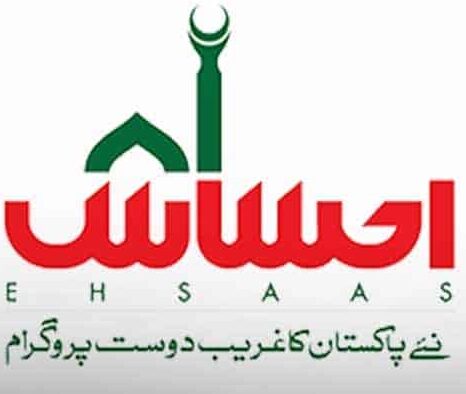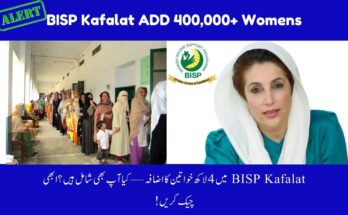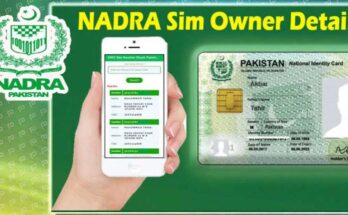Loan in Pakistan in 2025 Securing a loan in Pakistan in 2025 offers individuals and businesses opportunities to meet personal, educational, housing, or entrepreneurial needs. With a growing economy and government-backed initiatives, various loan options are available, including personal loans, business loans, housing finance, and interest-free schemes tailored for students, youth, and small entrepreneurs. These loans are offered by commercial banks, Islamic financial institutions, microfinance organizations, and government programs. However, navigating the application process requires understanding eligibility criteria, documentation, and the specific requirements of each loan type. This article provides a comprehensive guide to obtaining a loan in Pakistan in 2025, covering key loan types, steps to apply, and tips to maximize approval chances, while addressing potential challenges.
Types of Loans Available in Pakistan in 2025
Pakistan’s financial landscape offers diverse loan products to cater to different needs. Here are the primary categories available in 2025:
- Personal Loans: Offered by banks like Habib Bank Limited (HBL), Bank Alfalah, and MCB Bank, these loans are unsecured, requiring no collateral. They range from PKR 25,000 to PKR 4 million, depending on the bank and applicant’s eligibility, with repayment tenures of 1–5 years.
- Housing Loans: The Mera Pakistan Mera Ghar scheme, supported by the State Bank of Pakistan, provides affordable housing finance for low- and middle-income groups, including Non-Resident Pakistanis (NRPs). Islamic options, like Meezan Bank’s Easy Home, cater to Sharia-compliant needs.
- Business and Entrepreneurship Loans: The Prime Minister’s Youth Business and Agriculture Loan Scheme (PMYB&ALS) and CM Punjab Asaan Karobar Card offer loans up to PKR 30 million, often interest-free, for small businesses and startups. These target youth aged 21–45 and small entrepreneurs.
- Interest-Free Loans: Organizations like Akhuwat Foundation and programs like Ehsaas Loan Program provide interest-free loans (PKR 50,000–5 million) for underprivileged students, marginalized communities, and micro-entrepreneurs.
- Student Loans: The National Bank of Pakistan (NBP) offers interest-free student loans for meritorious students facing financial constraints, covering tuition and living expenses. Askari Bank’s Education Loan requires at least 50% marks in prior exams.
- Instant Loans: Apps like Aitemaad and JS CashAsaan provide quick loans up to PKR 4 million without collateral, ideal for urgent needs.
Step-by-Step Guide to Obtaining a Loan
1. Identify Your Loan Needs and Type
Determine the purpose of the loan—personal expenses, home purchase, business startup, or education—and choose the appropriate loan type. For example, PMYB&ALS suits young entrepreneurs, while Mera Pakistan Mera Ghar is ideal for homebuyers. Research banks, microfinance institutions, or government schemes to find the best fit based on interest rates, repayment terms, and eligibility.
Tip: Compare loan terms online via bank websites (e.g., www.hbl.com, www.meezanbank.com) or government portals like pmyp.gov.pk to understand rates and conditions.
2. Check Eligibility Criteria
Eligibility varies by loan type and provider. Common requirements include:
- Age: 21–45 for business loans (e.g., PMYB&ALS), 18–35 for some interest-free loans (e.g., Ehsaas Naujawan).
- Nationality: Must be a Pakistani citizen with a valid CNIC. NRPs may qualify for housing loans with additional regulatory compliance.
- Income: Minimum monthly income of PKR 35,000 for personal loans (e.g., HBL). Business loans may require a viable business plan.
- Academic Performance: For student loans, at least 50% marks in prior exams.
- Credit History: Banks assess creditworthiness, though interest-free schemes may be more lenient.
Tip: Contact the lender or visit their website to confirm specific eligibility. For government schemes, check pmyp.gov.pk or kamyabjawan.gov.pk.
3. Gather Required Documents
Documentation is critical for loan approval. Common requirements include:
- Valid CNIC (applicant and co-borrower, if applicable).
- Proof of income (salary slips, bank statements, or business financials).
- Loan Application Form (LAF) and Product Disclosure Sheet for housing loans.
- Business plan for entrepreneurial loans (e.g., PMYB&ALS).
- Academic records for student loans.
- Property documents for housing loans (e.g., title deeds).
- For interest-free loans, additional proof of financial need or community status may be required.
Tip: Ensure documents are attested by relevant authorities (e.g., notary public) and keep multiple copies. For digital applications, scan documents in advance.
4. Choose the Application Method
Loan applications can be submitted through:
- Bank Branches: Visit banks like HBL, Bank Alfalah, or NBP for personal, housing, or student loans.
- Online Portals: Government schemes like PMYB&ALS and Maryam Nawaz Loan Scheme accept applications via pmyp.gov.pk or kamyabjawan.gov.pk.
- Mobile Apps: HBL Mobile App, Aitemaad, or JS CashAsaan offer digital applications for personal or instant loans.
- NGOs: For interest-free loans, apply through Akhuwat Foundation’s website or Ehsaas Program by sending CNIC to 5771.

Tip: Online applications are faster and more convenient. Ensure a stable internet connection and verify portal authenticity to avoid scams.
5. Submit Application and Follow Up
Submit the application with all required documents. For government schemes, applications are processed online, while banks may require in-person verification. After submission, banks or programs may conduct credit checks, interviews, or site visits (for business or housing loans). Processing times vary: instant loans may be approved within hours, while housing or business loans can take weeks.
Tip: Track your application status via the lender’s portal or customer service. For PMYB&ALS, use pmybals.pmyp.gov.pk to monitor progress.
6. Loan Disbursement and Repayment
Upon approval, funds are disbursed to your bank account or via a digital SME card (e.g., CM Punjab Asaan Karobar). Repayment terms range from 1–7 years, with interest-free options for schemes like Ehsaas or Akhuwat. Personal loans may have competitive rates, while Islamic finance follows Sharia-compliant models.
Tip: Set up automatic repayments to avoid penalties. For interest-free loans, adhere strictly to repayment schedules to maintain eligibility for future funding.
Challenges and Solutions
- High Interest Rates: Conventional loans may have high rates. Opt for Islamic finance or interest-free schemes like Akhuwat or Ehsaas.
- Complex Documentation: Incomplete documents delay approval. Consult a financial advisor or bank representative to ensure compliance.
- Eligibility Barriers: Low income or poor credit history can hinder approval. Explore microfinance or government schemes with lenient criteria.
- Processing Delays: Overloaded systems can slow processing. Follow up regularly and apply early to meet deadlines.
Practical Tips for Success
- Research Lenders: Compare interest rates, tenures, and terms across banks and schemes. Use official websites like www.sbp.org.pk or www.nbp.com.pk.
- Maintain Good Credit: Pay existing debts on time to improve creditworthiness for bank loans.
- Leverage Government Schemes: Programs like PMYB&ALS or Ehsaas offer low or no interest, ideal for youth and marginalized groups.
- Seek Professional Help: Engage a financial consultant for complex loans like housing or business financing.
- Avoid Scams: Use verified portals and apps. Avoid unofficial lenders promising quick loans without documentation.
Conclusion
Obtaining a loan in Pakistan in 2025 is accessible through diverse options tailored to personal, housing, business, or educational needs. By identifying the right loan type, meeting eligibility criteria, preparing accurate documentation, and choosing the appropriate application method, applicants can secure funding efficiently. Government-backed schemes like PMYB&ALS and interest-free programs like Ehsaas or Akhuwat make loans more inclusive, especially for youth and underprivileged groups. Despite challenges like documentation or delays, careful planning and proactive follow-ups can ensure success. By leveraging these opportunities, individuals and entrepreneurs can achieve their financial goals, contributing to personal growth and Pakistan’s economic development.




